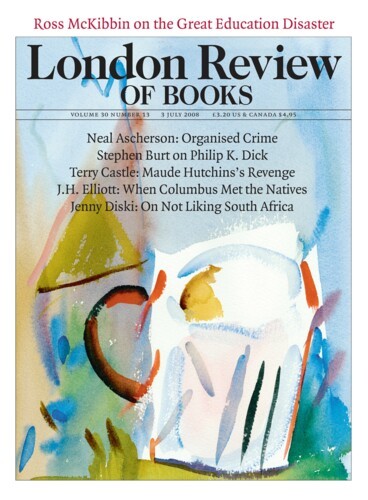Obama v. Clinton: A Retrospective: A Tale of Two Candidates
Eliot Weinberger, 3 July 2008
On the final night of the relentless presidential primary campaign, Jesse Jackson compared Barack Obama’s victory to the signing of the Declaration of Independence. Erica Jong compared Hillary Clinton’s defeat to watching Joan of Arc burning at the stake. Obama was in St Paul, Minnesota, pointedly in the very arena where the Republicans will hold their convention in September, at...


